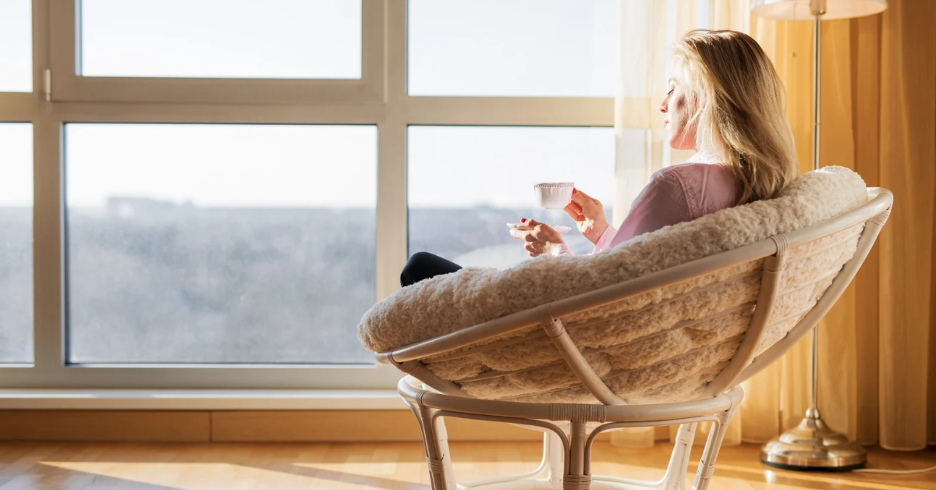
The Pace of Your Life Is Affecting Your Health, Here’s How to Slow Down (Without Quitting Everything)
“I Don’t Have Time to Burn Out.”
If you’ve ever said that, read this slowly.
Because the pace you’re living at may be the very thing quietly burning you out.
Not because you’re weak, unfit, or doing something wrong but because your biology is not built for constant speed.
And no one’s talking about it.
Your Pace Is a Signal to Your Body
Your body listens to rhythm more than rules.
It doesn’t care how many steps you hit or how many greens you ate today, if you’re rushing from task to task, fight to freeze, screen to screen…it activates survival mode.
Here’s what that mode looks like:
- Cortisol spikes (your stress hormone)
- Hormonal imbalance
- Gut shutdown
- Shallow breath
- Tight jaw, brain fog, fatigue
- Skin issues, bloat, reactive emotions
All of this happens quietly. Daily.
Until it shows up as a symptom you can’t ignore.
5 Ways a Fast-Paced Life Wears Down a Woman’s Health
1. Your Nervous System Thinks You’re in Danger
When your day has no built-in pause, no moment of true stillness, your body never downshifts.
That means digestion, sleep quality, hormone regulation, and cellular repair all suffer.
What helps:
- One 5-minute “nothing” break midday (no phone, no input)
- Lying down with one hand on your heart, one on belly, eyes closed
- Walking without a goal, just for rhythm
2. Your Hormones Can’t Keep Up
Fast living overstimulates cortisol and depletes progesterone, which is critical for emotional balance, sleep, and fertility.
It also disrupts insulin and thyroid function.
What helps:
- Evening meals before 7 PM
- Lower caffeine after 12 PM
- More warmth: in meals, lighting, and voice
3. You Don’t Recover, You Pause Just Long Enough to Keep Going
There’s a difference between real rest and functional collapse.
Many women take 10-minute breaks that feel more like crashes than resets.
What helps:
- Scheduling breaks like meetings
- No “multitasking rest” (e.g. scrolling in bed doesn’t count)
- Evening rituals that feel slow, tea, music, oil massage, breathwork
4. You’re Breathing Like You’re Running, Even When You’re Sitting Still
Shallow breathing triggers your stress response.
Over time, it leads to low oxygen, poor sleep, and tension in the shoulders, face, and pelvic floor.
What helps:
- Mouth closed, nasal breathing only
- 5 breaths in/out before emails or calls
- Gentle sighs. They count.
5. You’ve Lost the Joyful Rhythms That Kept You Human
Where’s your morning stretch?
Your long exhale before bed?
Your phone-free walk around the block?
When pace replaces rhythm, your body doesn’t just age faster, it forgets how to feel good.
What helps:
- Replace one rush with one ritual
- Reclaim joy from noise
- Let silence in again
How to Slow Down—Without Quitting Everything
Let’s be honest.
Most women can’t drop everything and move to a farmhouse.
You still have deadlines. Kids. Clients. Expectations.
But here’s the truth:
You don’t need to leave your life to change your pace.
You just need to create micro-moments of recovery inside it.
Try this:
- 3 minutes of sun on your skin in the morning
- Warm meals eaten slowly, without devices
- A “no input” window before bed
- One quiet pause in your day (even in the car)
- Reframing urgency: “Is this actually an emergency?”
Your Body Doesn’t Want to Work Against You.
It Wants to Work With You.
The fatigue you feel? It’s not failure.
It’s data.
It’s your biology telling you:
“Please stop sprinting. We were never meant to live like this.”
And the most powerful health shift you can make may not be a supplement, a workout, or a detox, but the decision to slow down long enough to hear yourself again.
Final Thought: Your Pace Is Part of Your Healing
The women who feel strong in their 40s and 50s aren’t pushing harder. They’ve simply stopped confusing pressure with progress. And they’ve learned to let rest become a strategy, not a last resort.
Health isn’t a program.
It’s a rhythm.
And rhythm requires space.
Ready to reclaim your rhythm?
Follow me on Instagram @eugene_antenucci for daily tools to slow down, reset your nervous system, and live with intention. Explore Living Longer, Living Better and The Forever Human for more grounded ways to build true vitality.

